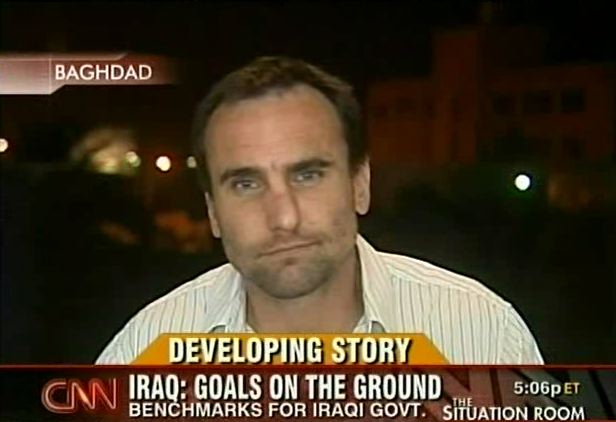TSR: Reality check on the benchmarks

Click photo to play
Length: 3:56
WOLF BLITZER: The United States isn't going it alone in Iraq. The president's strategy certainly depends heavily on the performance of the Iraqi government and the Iraqi military.
And joining us now from Baghdad, our correspondent, Michael Ware.
As, you know, Michael, the administration has to report on these 18 so-called benchmarks, how the Iraqi government is doing and living up to its part of the bargain.
Let's go through a few of them and tell me if it's likely they're going to be able to achieve these goals. For example, providing three trained and ready Iraqi brigades to support Baghdad operations.
So far, I've been told they may have one.
But do you think they're going to have three fully operational brigades, the Iraqis, in to provide security to the capital?
MICHAEL WARE, CNN CORRESPONDENT: Well, Wolf, that might be difficult to deliver.
However, that is one of the few benchmarks where the military may be able to have told the White House in its report leading to the interim report that there may have been some progress -- or, even, indeed, significant progress.
It's clear that the Iraqis are providing some numbers for the surge in the capital of Baghdad. The question, though, that remains a mystery and shrouded behind operational security is whether, in fact, they have attained the full three brigades.
But that's one where there was some progress. I don't know if it's a victory, though.
BLITZER: All right, let's talk about another one -- reducing the level of sectarian violence in Iraq and eliminating militia control of local security. In other words, doing away with the various militias.
Is that doable in the short-term?
WARE: Oh, no. That's absolutely daydreaming to -- for anyone in D.C. or the Pentagon to believe that that could be possible -- this year, next year, even; let alone by September. I mean the militias have become the fundamental building blocks of much of the conflict here and, indeed, are the essential frame of reference for the shape and nature of political power as it's defined in this country. Power here, politically is still marked by the barrel of the gun and how many men at arms you can command or how you can turn the streets to violence at your whim.
Now, in terms of sectarian violence here in the capital of Baghdad, where most of the focus of the surge is placed, there's been some dampening of some of the normal indicators on levels of violence.
Nonetheless, we had, what, 500 -- almost 500 executed bodies found on the streets of the -- just the capital alone. That doesn't include the rest of the country.
So, no. An end to sectarian violence or a significant dampening in it, nor a dismantling of the militias -- no way, Wolf.
BLITZER: Michael Ware, we're going to be watching this every step of the way, together with you.
Thanks very much for joining us.
WARE: My pleasure.
BLITZER: Insurgents offered a reality check of their own just a little while ago. A barrage of up to 35 mortar rounds fell inside Baghdad's heavily fortified Green Zone -- supposedly, the safest part of the Iraqi capital. The U.S. Embassy says three people, including a U.S. service member, were killed. Eighteen people were injured, including five American citizens.
We're watching this story for you, as well.
Let's go back to Jack in New York for The Cafferty File -- Jack?
JACK CAFFERTY, CNN CORRESPONDENT: There's nothing, in my opinion, quite like Michael Ware's stuff out of Iraq.
Do you agree with that?
BLITZER: I do.
CAFFERTY: I mean he has a depth of knowledge about what's going on over there and can paint in the subtle shades of gray like nobody else that I've seen reporting on that war. It's good to have him back on the program.
BLITZER: And, you know, one thing about Michael I just want to point out, he's a courageous journalist. He's been there for four-and- a-half years.
You know what it's like to spend a few days in Iraq?
He's been there for, what, four-and-a-half years with very limited time off.
CAFFERTY: Yeah, if you look up "tough guy" in the dictionary, Michael's picture is there, I think. He's doing yeoman's work, and we're lucky to have him.
